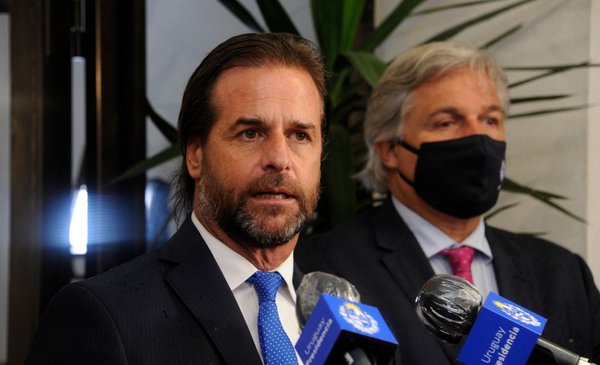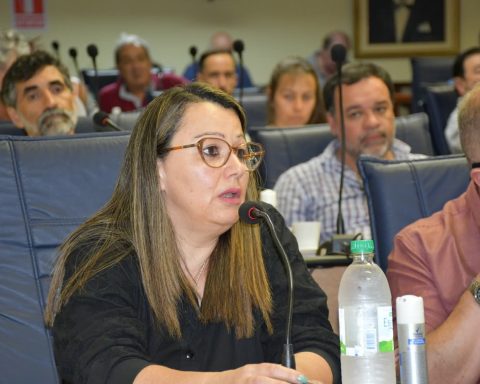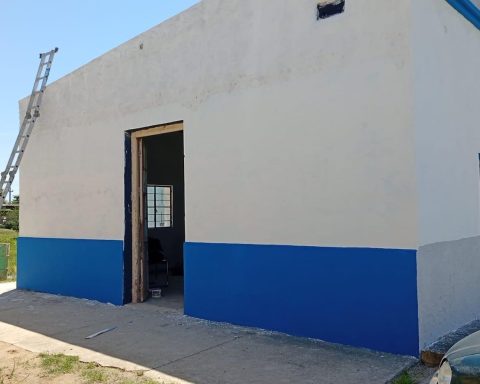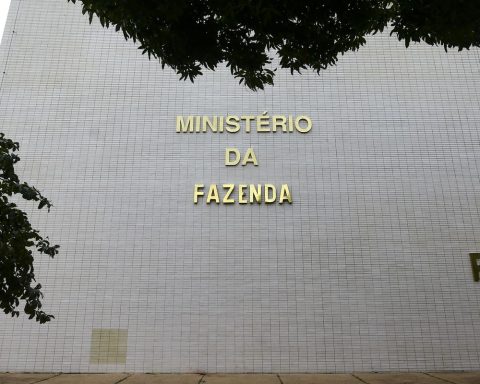President Luis Lacalle Pou ordered the Minister of Foreign Affairs, Francisco Bustillo, that Uruguay adhere to the declaration of the Organization of American States (OAS) that condemned Russia’s invasion of Ukrainesources from the Presidency confirmed to The Observer.
The president’s decision, which means A review of the original Uruguayan position in the bodyhappened after it was made public that the Foreign Ministry had instructed the Uruguayan ambassador to the body, Washington Abdala, to vote against.
From the Presidency they communicated with Foreign Minister Francisco Bustillo to speak with the Secretary General of the OAS, Luis Almagro, and they entrusted Abdala to make arrangements with the rest of the representatives to rectify Uruguay’s position. as he knew The Observer, the president played a fundamental role in these hours for Uruguay to modify its position. During the conversation between Lacalle Pou and Bustillo, the chancellor acknowledged and took responsibility for his mistake.
The Observer reported this Sunday that the Foreign Ministry instructed the Uruguayan ambassador to the Organization of American States (OAS)Washington Abdullah, not accompany a resolution condemning the “illegal, unjustified and unprovoked invasion” from Ukraine by Russia which, in addition, called for the “immediate withdrawal” of the Russian military presence in the Eastern European country.
In this way, Uruguay remained among the 10 of 34 OAS countries that refused to co-sponsor the declaration, along with Argentina, Brazil, Bolivia, El Salvador and Nicaragua, among others.
The instruction Abdala received came directly from the chancellor, through a hierarchy of the chancellery, on Friday morning. Abdala had begun consultations with the Santos Palace on Wednesday and had argued about the need to adhere to the resolution by virtue of its content and the numerous adhesions that he had attracted.
However, the leadership of the Foreign Ministry thought it appropriate not to vote on the declaration and so they informed Abdala on Friday morning, before entering Parliament to appear for the negotiation of the Free Trade Agreement with China.
After the publication of the news this Saturday, the Foreign Ministry released a statement in which it argued that had not voted on the resolution to which 24 countries adhered because Uruguay had already carried out “forceful public demonstrations regarding the invasion of Ukrainian territory and condemning such actions” in two communiqués issued by the Ministry of Foreign Affairs, with a presidential tweet and also the word of Luis Lacalle Pou at a press conference.
However, according to diplomatic sources told The Observerthe Uruguayan representation before the OAS tried to negotiate the content of that resolution in order to adhere, but the government’s decision was remain on the sidelines, fundamentally because the declaration did not have the support of Argentina and Brazil.
The two neighbors of Uruguay have had approaches to the government of Vladimir Putin in recent months, including presidential missions to Moscow, and have also exhibited less harsh stances towards Russia than those of the Lacalle Pou government in the face of last week’s aggression.
contradictions
In addition to “strongly condemning the illegal, unjustified and unprovoked invasion of Ukraine by the Russian Federation” and call for the “immediate withdrawal of the military presence”, the OAS statement calls for “the cessation of any other military action” in Ukraine, makes a “strong call” on Russia to “cease immediately their hostilities” and condemn “the illegal recognition by the Russian Federation of the Donetsk and Luhansk regions”.
Instructed not to accompany the document, Abdala made a speech before his peers in which he took up Lacalle Pou’s criticism of the “offensive against Ukraine” by the “Russian military forces”, rejected “actions contrary to international law and the guiding principles of the United Nations”, and pointed out that “it is urgent to get out of this situation as soon as possible to resolve the conflict in a civilized way”.
After learning that Uruguay had not accompanied the OAS text, the Foreign Ministry issued a statement entitled “Uruguay condemns the Russian invasion of Ukraine,” in which it referred to the two other statements released during the week and the public demonstrations by Lacalle Pou.
“Through various pronouncements, Uruguay has expressed its clear condemnation violation of the sovereignty, territorial integrity and independence of Ukraine by military forces of the Russian Federation, considering it a violation of international law and the principles of the United Nations Charter,” the ministry said.
However, the word “condemnation” – one of the terms that ranks highest in the diplomatic world to indicate the disapproval of a conduct by an international actor – had not appeared in the two previous communiqués of the Uruguayan diplomacy as a result of the Russian invasion of Ukraine.
In fact, that term only appeared in the statement this Saturday, when they tried to explain why they had not voted for the condemnatory resolution in the OAS.
The one who did use that term was Lacalle Pou in a press conference in which he expressed himself categorically and forcefully on the matter, in contrast to his more careful tweet in which he rejected Russian actions through a syllogism – the president wrote that Russia had initiated an “offensive against Ukraine” and then added that his government rejects “actions contrary to international law”, and also unlike the voice of the Santos Palace that had already unequivocally denounced the violation of the norms and principles of international law , although without specifically using the word “conviction”.
The Foreign Ministry statement this Saturday was also the first to use the word “invasion” and not “offensive” by Russia.
But beyond the terminological issues, The explanatory statement of the Foreign Ministry of the Uruguayan vote in the body did not clarify why it did not support the resolution if it fully coincided with the aforementioned condemnatory Uruguayan position.
neither explained How did the fact that “Uruguay had already expressed itself” change?considering that this did not prevent Ambassador Abdala from expressing the Uruguayan position again in that instance.
“The principles in which we believe are to refrain from resorting to the threat or use of force against the territorial integrity or independence of any state,” said Abdala, in line with what was stated in the resolution to which he was ordered do not adhere
If, as the Foreign Ministry says, the reason for not accompanying the statement is that Uruguay had already expressed itself, then: why did Abdala take the floor, expressing again the Uruguayan position that does not differ too much from the aforementioned resolution? Why did the Ministry of Foreign Affairs then issue a new statement reiterating his position, and also incorporating terms such as “condemnation” and “invasion”, which were included in the statement that it decided not to accompany?
What was seen outside the doors -and what was reflected in the formality- after the OAS instance is that Uruguay did not support the motion of condemnation endorsed by the majority of the member countries in the main political forum of the hemisphere according to the government, a signal that goes against what, in the discursive, the chancellery tried to explain later.
















